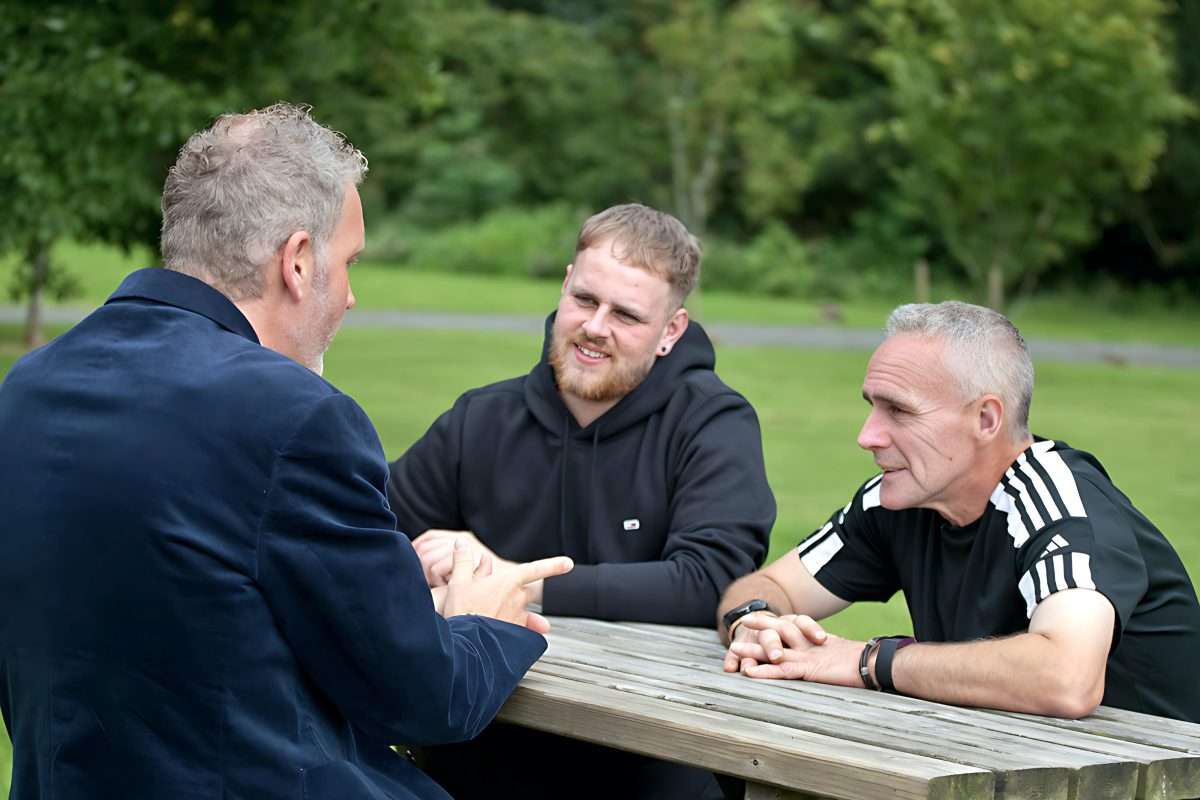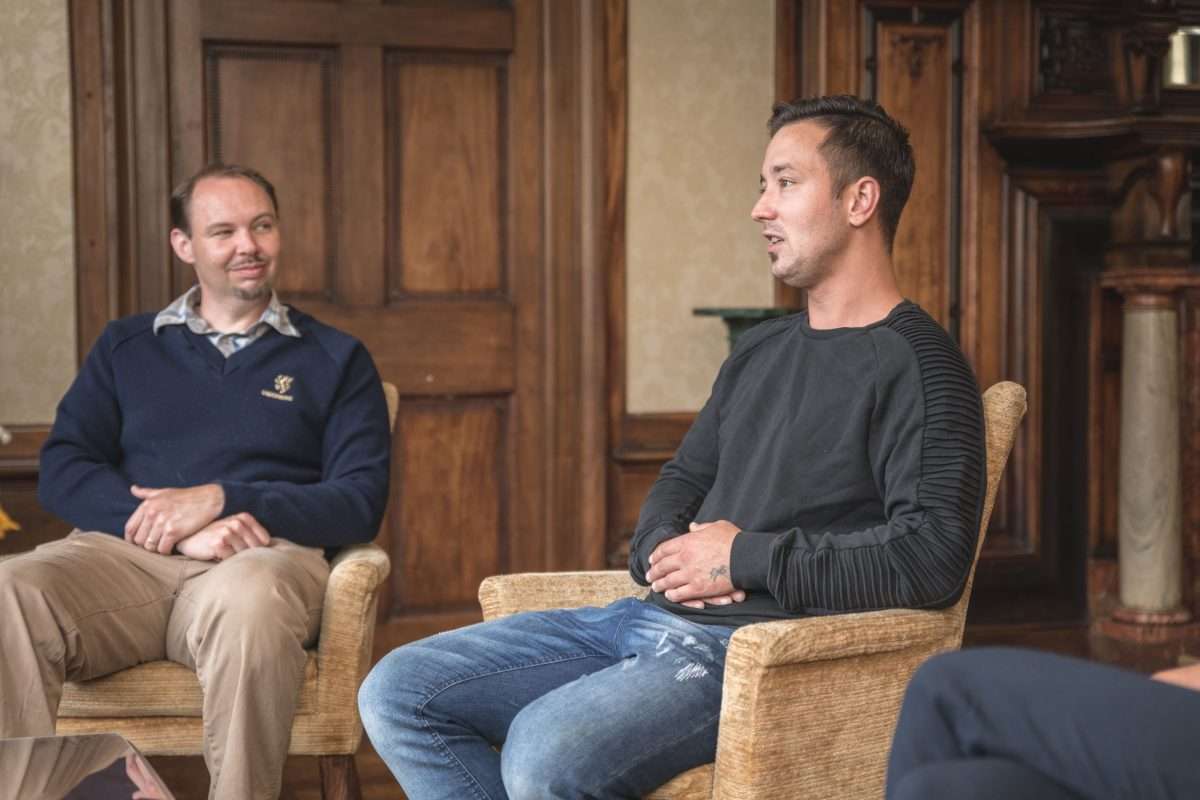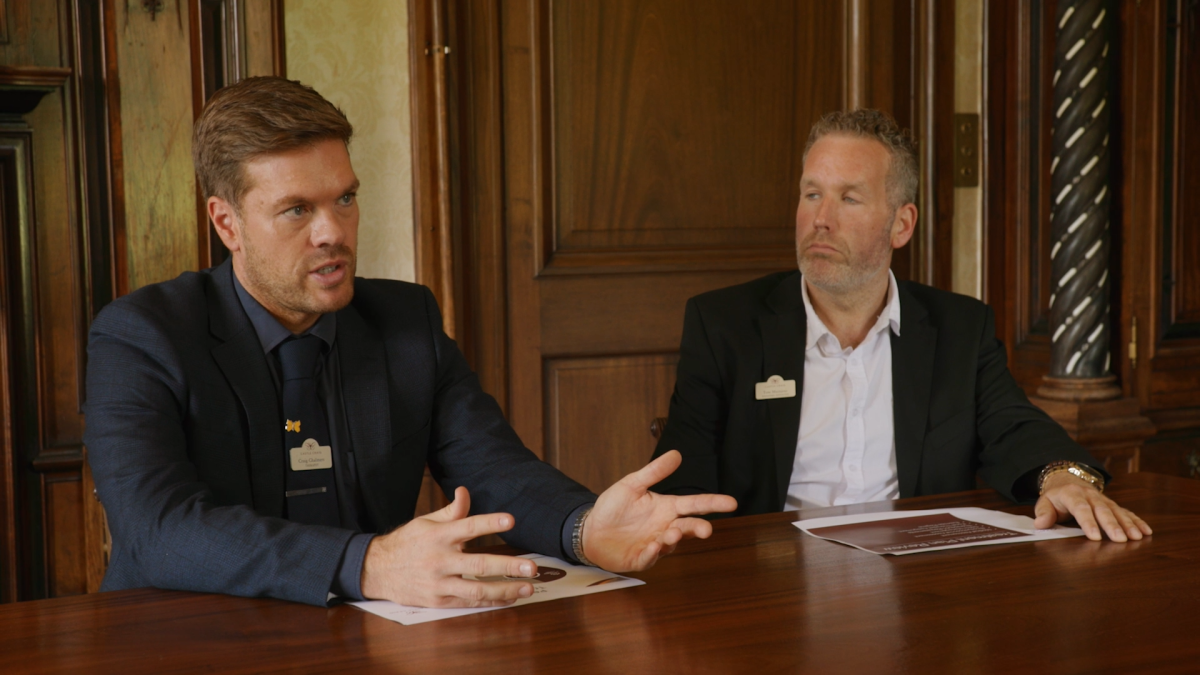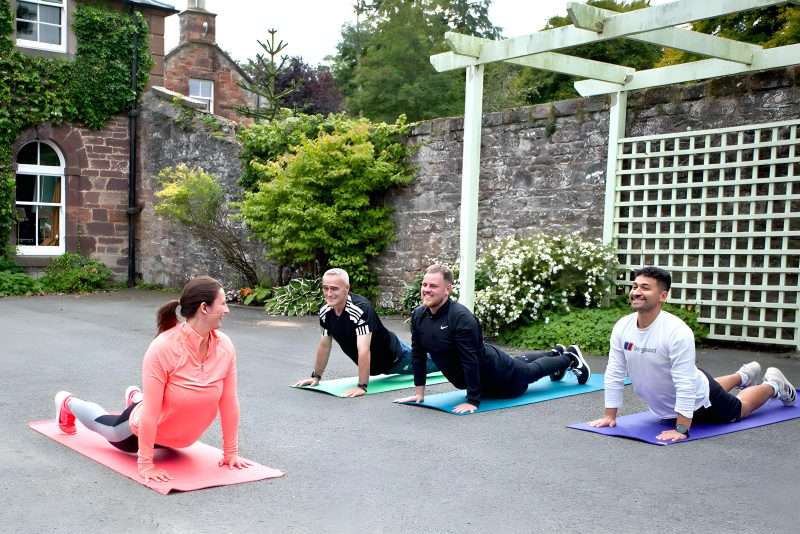
Treatment for Cannabis Addiction
While it’s often considered to be a ‘soft drug’, cannabis is an addictive substance which can elicit harmful effects. If you are struggling with cannabis addiction, it’s important to understand that your struggle doesn’t reflect a lack of willpower but rather a complex interplay of various biological and environmental factors.
As you contemplate the journey ahead, know that there are many cannabis rehab treatment options available to you, each with its benefits, tailored to suit different lifestyles and levels of dependency. The road to recovery is never straightforward, but it can be helpful to consider how a personalised treatment plan might look for you.
At Castle Craig, our treatment programmes offer holistic approaches for helping the whole person, not just the addiction. With over 35 years of experience, we can help you to overcome cannabis addiction and regain control of your life.
Key Takeaways
- Cannabis is an addictive drug and heavy use or repeated exposure can lead to the development of tolerance (where more cannabis is needed to produce the desired effects) and dependency.
- Cannabis addiction, also known as cannabis use disorder, is a recognised condition featuring a pattern of compulsive use, cravings and social issues. 2
- Long-term cannabis misuse can have significant impacts on health, impacting brain functions such as memory, thinking and learning. 4
- Seeking treatment for cannabis use disorder is important for improving mental and physical well-being and preventing negative consequences associated with cannabis misuse.
- Counselling and therapy can be helpful in the management of cannabis misuse. There are currently no NICE-approved medications for cannabis use disorder.
- Castle Craig’s inpatient cannabis rehabilitation programme provides a holistic approach and a supportive environment to promote long-term recovery.

Understanding Cannabis Addiction
Cannabis is also known as marijuana or weed, among other names. It is an addictive substance, with around 10% of people using it developing addiction, i.e., cannabis use disorder.
Grasping the nature of cannabis addiction is key, as it’s not just about occasional use, but a pattern of compulsive behaviours that persist despite the harm it may cause to your life and health.
Cannabis use disorder, or marijuana use disorder, can manifest itself in various ways. Signs of cannabis addiction can include: 5
- Intense cravings
- Development of tolerance (needing more cannabis to produce desired effects) and physical dependence
- Experiencing withdrawal symptoms when cannabis use is reduced or stopped
- Withdrawal from activities to prioritise cannabis use
- Inability to maintain usual responsibilities at work, school and/or home
- Persistent cannabis use despite negative consequences
According to the National Institute on Drugs Misuse, Cannabis has various effects on brain and body functioning. It contains the psychoactive component, THC, which binds to receptors in the brain, resulting in feelings of euphoria, also known as a ‘high’. Cannabis use can also result in other effects, such as changes in mood, senses, body movements, memory and thinking.
If used during adolescence, cannabis can impact brain development which can lead to impairments in learning, cognition and memory. These changes emphasise the potentially harmful effects of cannabis and highlight the need for early recognition and effective treatment.
There are currently no NICE-approved medications to treat cannabis addiction; however, the use of behavioural therapies like cognitive behavioural therapy, contingency management and motivational enhancement therapy can be incredibly beneficial. These strategies address the addiction by identifying and modifying harmful behaviours. 2,3
At Castle Craig, we understand all forms of substance misuse to be rooted in biological, psychological and sociological indicators. You may hold the belief that cannabis addiction is a milder form of the disease, but in reality, cannabis use disorder can result in significant health and social issues. These harmful effects can be all-consuming and reduce quality of life.
What are the Effects of Smoking Cannabis?
Cannabis causes a range of effects that people can find pleasurable, which is why it’s so commonly used. People usually refer to these effects as being “high”.
Cannabis can:
- Increase feelings of relaxation and calm
- Make you feel more social and talkative
- Alter time perception – minutes can feel like hours
- Make things seem funny or more amusing
- Change the way you interpret sensations – music might sound richer, food might taste better
- Reduce feelings of stress or worry (temporarily)
- Create a sense of euphoria or well-being
- Make colours appear more vivid or intense
However, cannabis can also cause unwanted effects, especially with stronger varieties or regular use:
Short-term negative effects may include:
- Anxiety, panic attacks, or paranoia
- Confusion and difficulty concentrating
- Memory problems and forgetfulness
- Feeling dizzy or unsteady
- Increased heart rate
- Dry mouth and red eyes
- Feeling disconnected from your surroundings
- Difficulty judging time and distance (making activities like driving dangerous)
With regular or heavy use, more serious problems can develop:
- Persistent anxiety and mood changes
- Problems with memory and learning
- Difficulty sleeping without cannabis
- Loss of motivation and interest in activities
- Relationship and work difficulties
- In some cases, cannabis can cause symptoms of cannabis-induced psychosis, such as hearing voices or developing false beliefs.

Download Our Brochure
Recognising Cannabis Addiction Symptoms
When assessing whether you or someone you love is struggling with cannabis misuse, it’s important to recognise that behavioural changes, such as withdrawing from social activities once enjoyed, may be an early warning sign.
Signs and symptoms of cannabis addiction can manifest subtly, so it’s crucial to approach this with an analytical eye and an empathetic understanding.
The Diagnostic and Statistical Manual of Mental Disorders, Fifth Edition (DSM-5) is a prominent text which provides criteria for diagnosing substance use disorders (SUDs). The DSM-5 recognises cannabis addiction as an addiction and provides four key categories for diagnosis:
- Loss of Control
- Physical Dependence
- Social Issues
- Risky Use
The presence of two or more of these signs or symptoms is indicative of a cannabis use disorder.

How to Spot Cannabis Addiction:
Within these categories are the classic signs and symptoms of cannabis use disorder. These are:
- Withdrawing from important occupational, social and/or recreational activities due to cannabis use
- Using cannabis in higher doses or for longer than intended
- Inability to reduce or stop cannabis use
- Investing significant amounts of time in sourcing, using and/or recovering from cannabis use
- Experiencing cravings
- Development of tolerance (needing more cannabis to get the desired effects)
- Experiencing withdrawal symptoms that are relieved by cannabis use
- Persistent cannabis use despite relationship issues
- Persistent cannabis use despite dangerous consequences
- Persistent cannabis use despite health problems that may be caused or exacerbated by cannabis use
- Inability to maintain usual responsibilities at home, school or work due to cannabis use.
Understanding these signs is the first step towards seeking drug addiction treatment. It’s vital to remember that cannabis addiction, like other substance use disorders, is a medical condition requiring compassion and professional intervention.
Withdrawal and recovery are challenging phases of the journey but with the right support from the team at Castle Craig, it’s possible to overcome addiction and regain control.
If you are still unsure as to whether you need help with your cannabis use, the following screening tool can assist you in making an informed decision.
Impact of Long-Term Cannabis Use
Understanding the long-term impacts of cannabis use is essential, as it is an addictive substance with the potential to change the way your brain functions and significantly alter your life’s trajectory.
If you start using cannabis as a teenager, it can alter critical brain circuitry, affecting learning, thinking and memory. People who start using cannabis before the age of 18 are also at increased risk of developing addiction.4
Research published in the British Journal of Pharmacology found that the psychoactive component of cannabis, delta-9-tetrahydrocannabinol (THC), is the active ingredient which acts on brain cell receptors to stimulate dopamine release. By activating the reward system, THC produces the short-term effects of cannabis. The amounts of THC in cannabis have reportedly increased over the past few decades. Over time, these higher levels of THC can lead to more harmful effects and increase the risk of developing addiction. 3,4
Cannabis, or marijuana, misuse has also been linked to profound changes in social, mental and physical well-being. Over time, cannabis misuse can lead to:
- Social Issues: Decreased life satisfaction, strained relationships and a decline in academic and/or work performance are all consequences of cannabis misuse
- Health Issues: Poorer psychological and physical health are long-term impacts of cannabis misuse
Long-term cannabis misuse can also precipitate withdrawal effects, such as anxiety, cravings and irritability, which can make abstinence difficult.
It’s also important to recognise that cannabis use disorder (CUD) can coexist with other substance use and mental health disorders, which can complicate the path to recovery. Generalised anxiety disorder (GAD), major depression and post-traumatic stress disorder (PTSD) have all been linked to CUD. Some people who misuse cannabis also misuse other substances like alcohol or cocaine.
Furthermore, cannabis is a psychoactive drug that can worsen pre-existing mental health conditions, such as schizophrenia, leading to a condition known as cannabis-induced psychosis.
Importance of Seeking Cannabis Addiction Treatment
While it may be challenging to acknowledge the need for help, seeking treatment for cannabis addiction can be life-changing and improve your mental and physical well-being. The journey to recovery begins with recognising the positive influences that treatment can bring. Effective cannabis addiction treatment can be more than a personal triumph; it can help heal family and social relationships.
How is Cannabis Addiction Treated?
There are currently no medications for treating cannabis addiction approved by the National Institute for Health and Care Excellence. Counselling and therapy are therefore recommended by NICE as the mainstay of treatment. These approaches can be helpful in identifying and modifying harmful behaviours which underlie cannabis addiction.
The process of cannabis addiction treatment, as with other substance use disorders, can vary from person to person. There is no one-size-fits-all approach, so it can be most useful to find treatments which best suit your unique needs and provide adequate support to aid long-term recovery.
Some key aspects of cannabis addiction treatment are:
1. Detox: In some cases, treatment starts with detoxification, to carefully and progressively stop cannabis use. At Castle Craig, we believe in an abstinence-based model of treatment and provide a medically supervised detox at our specialist detox unit. Once detox has been completed, patients can embark on therapies supporting long-term recovery
2. Therapeutic Support: Substance use disorder treatment includes various forms of therapy that target your thought patterns and triggers, helping you to develop new, healthier behaviours. Cognitive behavioural therapy (CBT) and motivational enhancement therapy (MET) are forms of psychotherapy which can be beneficial in cannabis addiction treatment
3. Comprehensive Care: Cannabis addiction treatment should be holistic and tailored to address your unique needs. In people with co-occurring conditions, both conditions should be treated simultaneously
4. Social Support: Research indicates that social support has an important role in addiction recovery. Helping families and loved ones affected by addiction is an essential part of the recovery process. Support groups, such as Narcotics Anonymous 8, can also provide encouragement and support to foster long-term recovery
Exploring Inpatient Cannabis Rehabilitation
If you’re struggling with cannabis addiction, residential treatment programmes, like those at Castle Craig, may offer the immersive support you need to recover. This setting initiates the detoxification process in a secure environment, followed by intensive therapy and the development of relapse prevention skills. It’s a holistic sanctuary where aftercare planning begins, ensuring you’re equipped with strategies to maintain sobriety long after you leave.
Our inpatient programmes at Castle Craig utilise the 12 Steps, a framework for addiction recovery which can positively impact recovery and support long-term abstinence. 9

Step into a Brighter Future
The Detoxification Process
Embarking on the journey to sobriety, inpatient treatment at Castle Craig begins with detoxification, ensuring you’re supported both physically and emotionally as your body adjusts to the absence of cannabis. As you navigate this phase, you will be cared for by a team of professionals who are experienced in cannabis withdrawal symptoms.
The safety net of inpatient treatment shields you from external triggers, providing a sanctuary where transformation can begin. Though the cannabis detox process is just one part of our comprehensive offering, the rest of your treatment programme will be focused on tackling the psychological nature of dependence.
Therapy and Relapse Prevention Skills
As you settle into the structured support of inpatient rehab, it’s crucial to engage in therapy and master relapse prevention skills that will help you navigate the road to lasting recovery.
Therapy sessions, particularly cognitive-behavioural therapy (CBT), are designed to dismantle the destructive thought patterns anchoring your cannabis addiction. This form of treatment empowers you to overcome cannabis addiction by instilling practical coping strategies and fostering resilience against triggers.
Dialectical Behaviour Therapy (DBT) has also been shown to help individuals with both substance misuse and mental health issues, by helping them to manage their emotions during difficult periods.

Role of Support Groups
Support groups provide a cornerstone of recovery for many individuals battling cannabis addiction, offering a shared space where you’re understood and not alone in your struggle. Within the framework of treatment and rehab, the benefits of such communal gatherings are manifold:
1. Empathy and Solidarity: You’ll find an unparalleled level of empathy, as people in recovery share similar challenges and triumphs over cannabis misuse.
2. Accountability and Insight: The collective wisdom within group therapy can guide you toward healthier choices, fostering accountability through shared experiences.
3. Sustained Motivation: In the ebb and flow of recovery, support groups serve as a wellspring of motivation, encouraging you to persevere when the journey gets tough.
In your journey to recovery, support groups can help ensure that your struggles are seen, efforts are supported and successes are celebrated. 7,11

Complementary Holistic Approaches
At Castle Craig, complementary therapies like yoga and meditation are integral to our holistic treatment approach. This compassionate approach is designed to help individuals develop:
- A deeper understanding of their mental health
- Enhanced cognitive behavioural therapy outcomes through mind-body connectivity
- Healthy coping mechanisms that replace the need for cannabis use
- Engaging in activities that boost confidence and self-esteem
Aftercare Planning Strategies
Patients who attend cannabis rehab with us benefit immensely from our continual care programme, planning strategies that include a network of support groups, ongoing motivational enhancement therapy and much more.
It’s essential to identify activities that reinforce your commitment to sobriety and schedule regular therapy sessions to maintain your progress. By developing coping skills and stress management techniques, you’ll be better equipped to handle the pressures post-rehab.
Remember, creating a strong support system with family, friends, and peers who champion your recovery journey is indispensable.
Outpatient Cannabis Addiction Treatment
At Castle Craig, we recognise that every individual’s recovery journey is unique. We therefore offer inpatient and/or outpatient cannabis addiction treatment programmes, which are tailored to address each patient’s unique needs and requirements.
Following inpatient treatment, patients complete our aftercare programme at home as an outpatient. This provides flexibility as you can schedule sessions around your personal responsibilities. Our Continuing Care Programme helps to support continued recovery from cannabis addiction post-discharge.
For some individuals, outpatient cannabis addiction treatment programmes may be sufficient to help them on the road to recovery. We offer this as an alternative to inpatient rehab as well.
If you would like to learn more about our outpatient programmes for drug addiction, please visit our outpatient programme page.

Addicted to Cannabis? We Can Help
Private rehab for cannabis addiction may not feel like a necessary option for many, but it’s important to remember that your cannabis consumption is not the primary cause of your illness. Residential rehab at Castle Craig is an immersive experience that helps to address the multi-faceted nature of addiction, which for some, may also include pre-existing mental health disorders that need treatment.
Cannabis addiction rehab is an investment in your or a loved one’s future, and with the help of our medical and therapeutic team, your journey to a better you begins today.
Contact us to book a free confidential assessment with an addiction specialist today.
-
References
- Janik P, et al. Categorization of psychoactive substances into “hard drugs” and “soft drugs”: a critical review of terminology used in current scientific literature. The American Journal of Drug and Alcohol Misuse. 2017;43(6): 636–46. doi:
- Yale Medicine. Cannabis/Marijuana Use Disorder.
- Hartney E, Umhau JC. What Is Cannabis Use Disorder?
- National Institute on Drug Misuse. Cannabis (Marijuana) DrugFacts.
- Buddy T, Gans S. 5 Signs of Marijuana (Weed) Addiction.
- World Health Organization (WHO). Cannabis.
- Narcotics Anonymous in the United Kingdom (UKNA). Welcome to UKNA.
- Greene D. Revisiting 12-Step Approaches: An Evidence-Based Perspective. In: Meil WM, Mills JA (eds.) Addictions – Diagnosis and Treatment. IntechOpen; 2021. doi: DOI: 10.5772/intechopen.95985.
- Hoffman M, DerSarkissian C. Counseling and Substance Use Disorders.
- Tracy K, Wallace SP. Benefits of peer support groups in the treatment of addiction. Subst Abuse Rehabil. 2016;7: 143–54. doi: 10.2147/SAR.S81535.
Experts You Can Trust
With a wealth of knowledge and services to help you regain control of your life, request a call-back from one of our professionals today. The choice you make today could change your life forever.